Objectives and purpose of psychological assessment in gamete donors.
The objective of psychological evaluation in gamete donors is the study and analysis of the psychological characteristics of a subject, including their forms of action, reaction and interaction with their immediate environment and with reality (Mikulic, 2017).
In the field of assisted reproduction, psychological evaluation needs to be approached from a holistic perspective, where the interdisciplinary training of the professional in psychology is essential, since, in this sense, evaluation transcends the limits of clinical or health psychology. Therefore, the objectives of the evaluation consist of:
- Make a mental map of the donor and his social and family context.
- To know the donor’s ability to understand the short-term, medium-term and long-term implications of the act of donation.
- Detect psychopathological factors that may hinder medical treatment.
- Detect psychopathological factors whose probability of being genetically inherited is high.
- Inquire about the donor’s coping skills, as well as the sources of social support available at the time of donation.
- Check that there is no feasible evidence of coercion in their decision to donate and know what their motivations are for it.
- To verify that there is an ethical, emotional, physical and cognitive commitment to the process and that, regardless of whether there is an economic motivation, there is a clear satisfaction towards the donation that emanates, in part, from generosity and reciprocity.
- Check the personality factors that may interfere in the process and hinder medical actions: lack of responsibility, informality, disorganization, lack of adherence to treatments… etc.
To carry out this process, we conducted a semi-structured clinical interview, accompanied by standardized psychometric instruments. To do this, one or two interviews of at least 30 minutes will take place. In this way, it is proposed in the first, to carry out an interview as a “screening”, to detect psychopathological traits that may be the object of consultation and to carry out a profile of the donor. Once the existence of any criteria that may be subject to exclusion has been ruled out, we will go a little deeper into the motivation of the donor.
Although the semi-structured interview provides us with a large amount of information, we believe it is also necessary to apply the SA-45 questionnaire (a reduced version of the SCL-90 test) in order to verify that, indeed, there are no psychopathological symptoms that should alert us. Both the SCL-90 and its abbreviated version are tests that generally measure a wide variety of clinical symptoms (anxiety, depression, phobias, obsessive-compulsive disorders, emotional dysregulation… etc). It is important to note that these questionnaires do not have a diagnostic utility, but they do work as a valid screening tool that will allow us to detect foci of interest. Therefore, in the event that we observe the presence of potentially pathological symptoms, it would be advisable to administer specific tests, such as those detailed below:
- STAI Trait State Anxiety Inventory. It is a very useful questionnaire to determine transient states of anxiety and differentiate them from endogenous conditions. Specifically, this questionnaire can be used to see if the person is characterized by a predisposition to suffer from anxiety, in which case we should consider discarding them as a donor, especially if there are also first-rate relatives with a history of psychiatric disorders.
- Beck’s Depression Inventory. In this case, it would work as a very useful clinical tool to diagnose a depressive disorder and differentiate it from transitory states of mild sadness.
- Hamilton Anxiety Scale (HAS). It is an inventory of 14 items that evaluates the presence of physical and psychological symptoms of anxiety.
- MCMI-IV, Millon Multiaxial Inventory to detect personality disorders.
Exclusion criteria at the psychological level
Regarding the exclusion criteria at the psychological level, we must consider the following conditions:
- Suffering a serious mental disorder, according to the DSM-V criteria (depression, bipolarity, schizophrenia or personality disorders, among others)
- Having a neurodevelopmental disorder or having a family history of it (see family history chart)
- Having a first/second degree family history of mental illness (see family history chart)
- Presenting an unstructured lifestyle, participating in risky styles (drug use, gambling addiction, unprotected sex… etc.)
- Present a broken family where the donor is exempt from a minimum of psychological and emotional support or where it is difficult for us to develop a family tree that allows us to study the family history.
- Presenting pending cases with the courts that may be a stressor for the patient at the time of donation or that may suggest a reason for pressure or economic coercion towards donation, distorting the motivational factor and destabilizing the donor during the process.
- Have an adjustment disorder at the present time according to the DSM-V criteria. In this case, it is recommended to assess a “PROVISIONAL UNFIT” and repeat the assessment in about 6 months, referring the subject to mental health services if required.
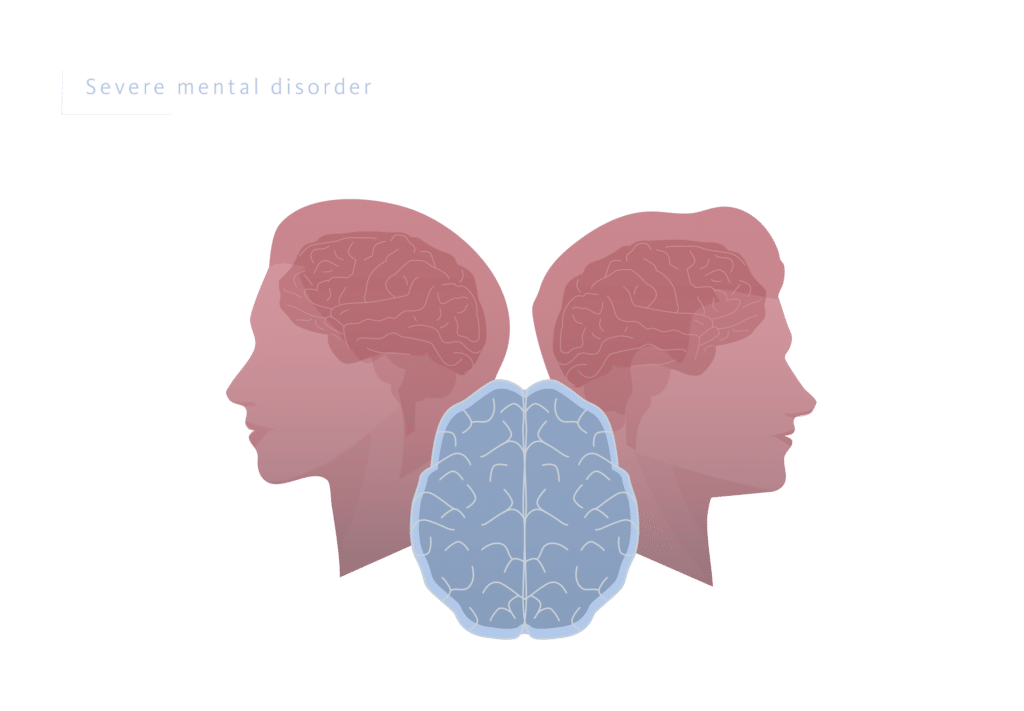

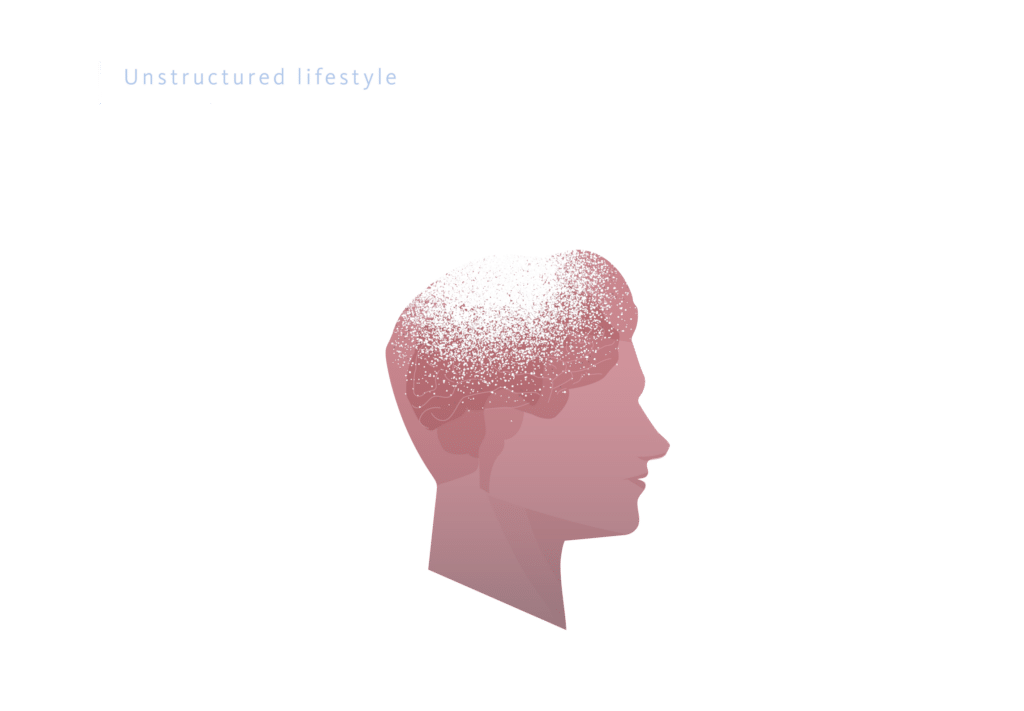
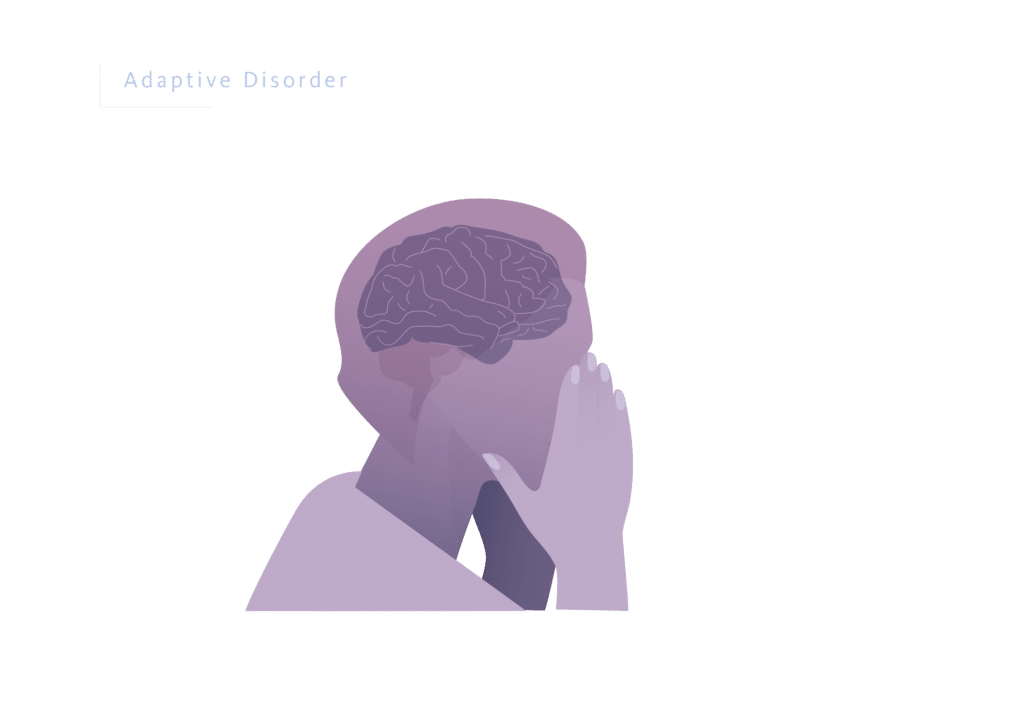
With regard to the family history of mental disorders, we must take into account, above all, the following:
- Schizophrenia
- ADHD
- Pervasive Developmental Disorders (Autism Spectrum Disorders and others)
- Depression
- Bipolarity
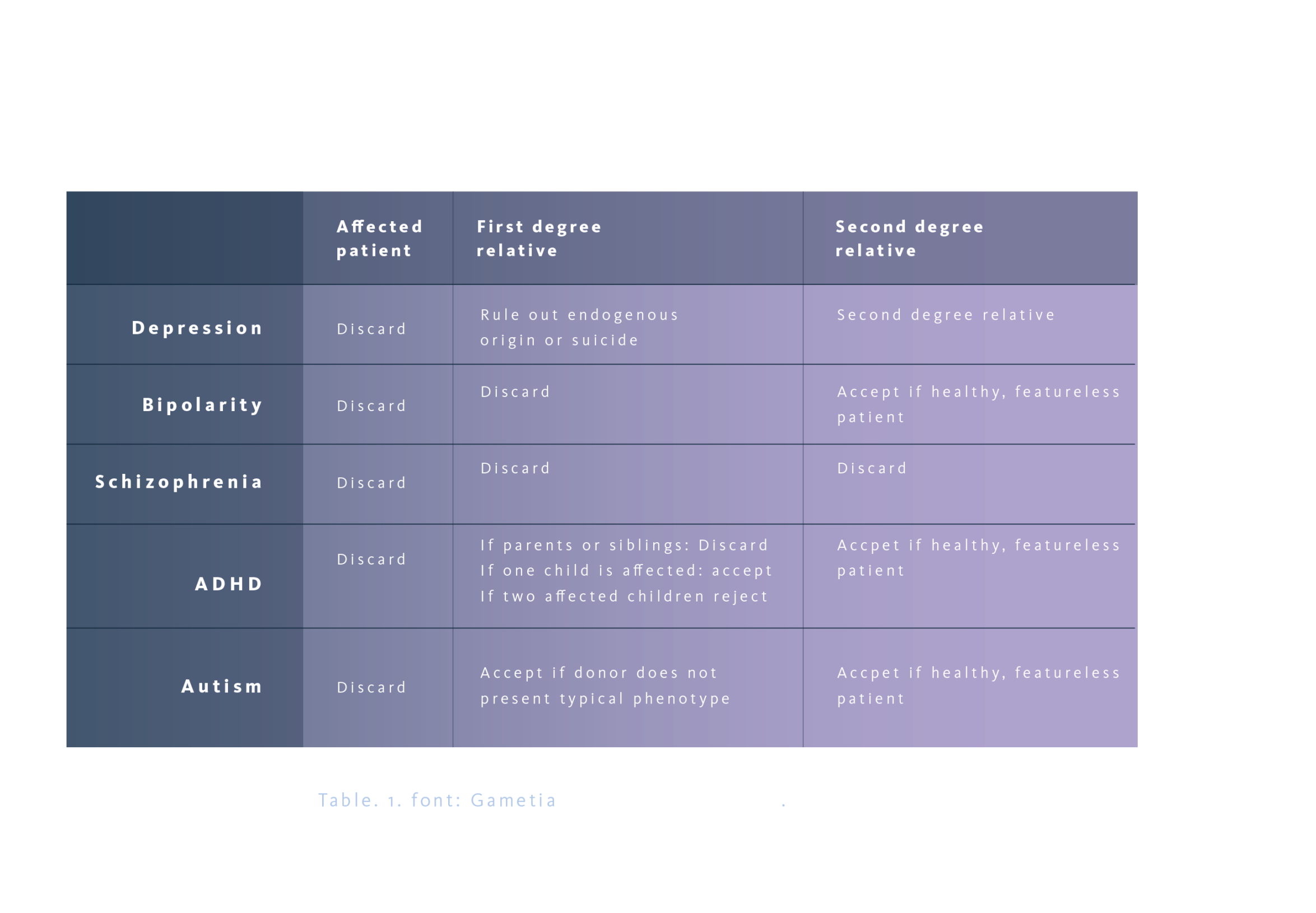
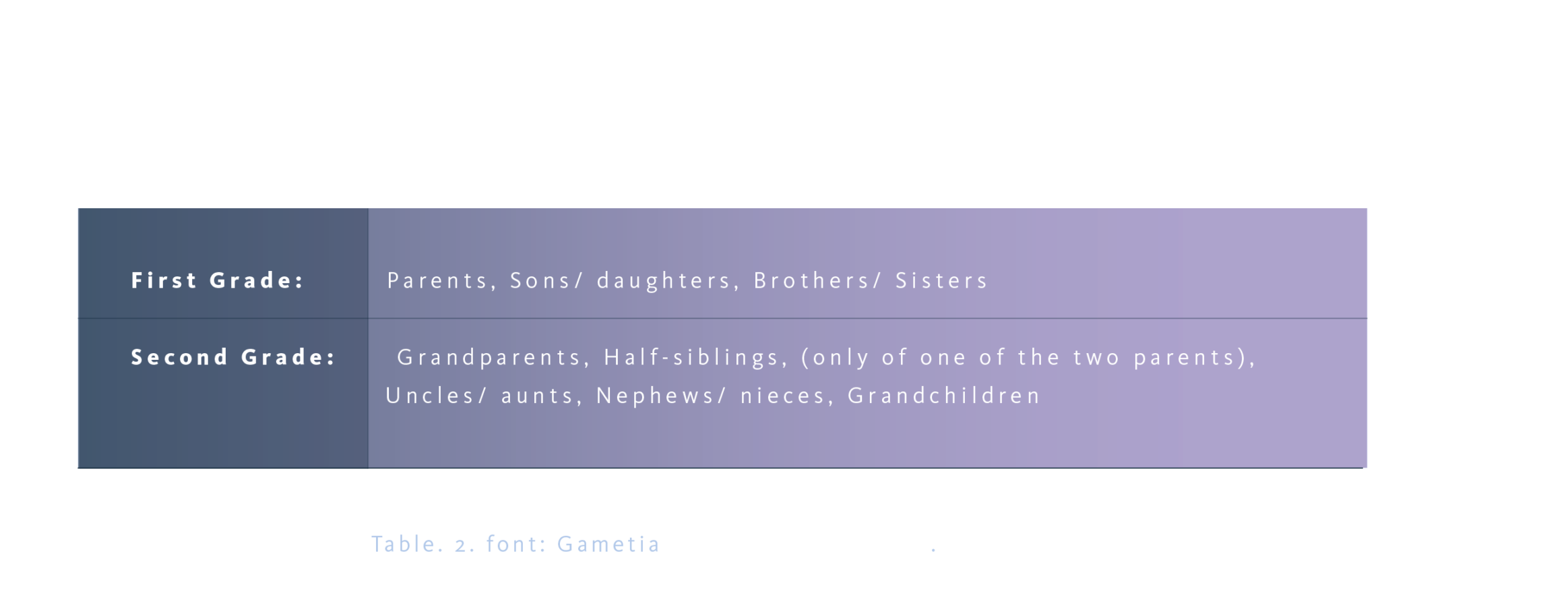
*Be careful when parents have children from different couples. It is essential to ask if all the siblings come from the same parents and also if any of them were adopted.
The percentage of discards for psychological/social reasons ranges between 25 and 35% depending on the geographic region.
Psychological interview: Semi-structured interview and specific tests
To conduct the psychological interview, it is important to start with a cordial and friendly tone that facilitates trust and the exchange of information. First, a semi-structured interview will be developed with several open and closed questions, in order to clarify the following points:
- History of previous donations
- Donation Information and Motivations
- Genealogical tree and family structure
- Emotional and sexual situation. Use of contraceptive methods.
- Education level
- Current employment and economic situation
- Presence of physical and mental illnesses
- History of traumatic, painful or stressful life situations.
- Attendance at mental health services (public or private psychiatry or psychology) and reason for consultation.
- Vital stressors at the present time
- Mood, emotional regulation strategies and coping strategies used in problematic situations.
- Social behavior (introversion/extraversion)
- Social and family support
- Presence of psychosomatic symptoms (muscle tension, headaches, migraines, digestive problems, insomnia, irregular menstrual cycles…)
- Routines and lifestyles, participation in risky lifestyles (drug use, unprotected sex, etc.)
- Cognitive functioning (attention, memory, higher executive functions…)
- Pending cases with the justice courts
- Responsibility and commitment to donation
Once have collected all this information and the psychological screening is satisfactory, will move on to administering the SA-45 questionnaire. In the event that there are no high scores on any scale, we will proceed to consider the donor as SUITABLE.
However, as noted above, this questionnaire lacks diagnostic utility, so we must be cautious and comment on high scores, if they appear. For example, when a donor expresses “fear of leaving the house alone or feeling that someone wants to hurt him,” presenting a high score on a scale that could suggest the presence of social anxiety or even a paranoid personality disorder, this subject could have recently been the victim of an attack and manifest as a result a high degree of sympathetic activation and hypervigilance, without presenting a mental disorder. In this case, it would be advisable to assess whether there is an adjustment disorder or post-traumatic stress disorder, the impact on the subject’s life and its repercussions during the donation process. To be more rigorous, it would be advisable to rule out the presence of a mental disorder using the appropriate scales. In the event that the presence of an adaptive disorder is detected that could destabilize or hinder the subject’s adaptation to the donation process, the donor is considered PROVISIONALLY UNSUITABLE. In these specific cases, it is proposed to repeat the evaluation after 6 months, thus highlighting the longitudinal nature of the psychological interview and its relevance during the gamete donation process.
